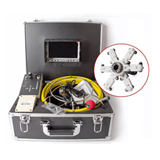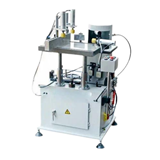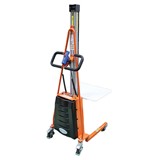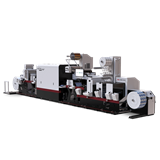Keyless locks work on a digital system and mainly use passwords, RFID or even fingerprints (biometric locks) for entry. In a similar set-up as hotel room entry, cards can hold billions of possibilities for codes, and illegal access without the card is almost impossible.
Biometric locks, which use fingerprint technology, are one of the most secure forms of access. According to Sam Karadaky, of Digital Door Locks, fingerprint locks have different algorithms to read several points on a person's fingerprint. These points are then put into an algorithm and stored in the device.
It is one of the safest locking systems for residential homes, as passwords or codes cannot be transferred to others.
Basic residential models start from around $255 and range up to $1,000 for higher end fingerprint locks, which have more functionality. The locks can be as simple to install as a standard lock, with all programming performed within the actual lock.
According to Kerry Hayman, of Fingerprint Locks, "Even the higher-end biometric locks, which can be integrated into home automation systems, can be installed as stand-alone units, and fully programmed at the lock.
"The majority of biometric locks for residential applications have a mechanical key option, as well as an access code, and fingerprint access."
Although they have been used for around 20 years, biometric locks are a relatively recent innovation in the industry.
Biometric locks are not the only innovation in residential security. According to Karadaky, face recognition is also a new trend by Samsung. The system is operated by pressing an activation button while the user stands in front of the camera. Within two seconds the door can be opened.
Aside from practicality, keyless locks have other advantages. Access cards and fingerprints cannot be copied. This is most commonly a security problem for rented premises, where previous tenants may have copies of keys, allowing them to access the property after they have left the premises.
Despite the misconception that digital locks are a high-end product, the product can be priced from as little as $199 to $799. According to Karadaky, a basic lock will give the user access via a password and/or card. More expensive locks allow the user to check who has accessed the house, at what time, and on any given day. All this information can be downloaded to a computer via a USB port.
In the event that a user forgets their password, mechanical keys and RFID cards are an option, which can be left elsewhere – for example, in a car.
Like biometric locks, digital locks can be integrated into home automation systems or work alone. For example, Samsung digital locks work on a short circuit signal to release locks, making it easy to integrate with home automation systems.
Currently, keyless locks cannot be used in all applications – some cannot be used for fire doors – but according to Karadaky, Digital Door Locks are working on obtaining certification.
Looking ahead, Hayman sees the industry heading into the direction of integrating wireless technology into a range of locks.
As Hayman sees it, "This is both exciting, not only for this technology development occurring within this country, but the potential to remove the need for wiring locks into an automated network, thereby reducing cost and time."










-160x160-state_article-rel-cat.png)



-160x160-state_article-rel-cat.png)








-160x160-state_article-rel-cat.png)